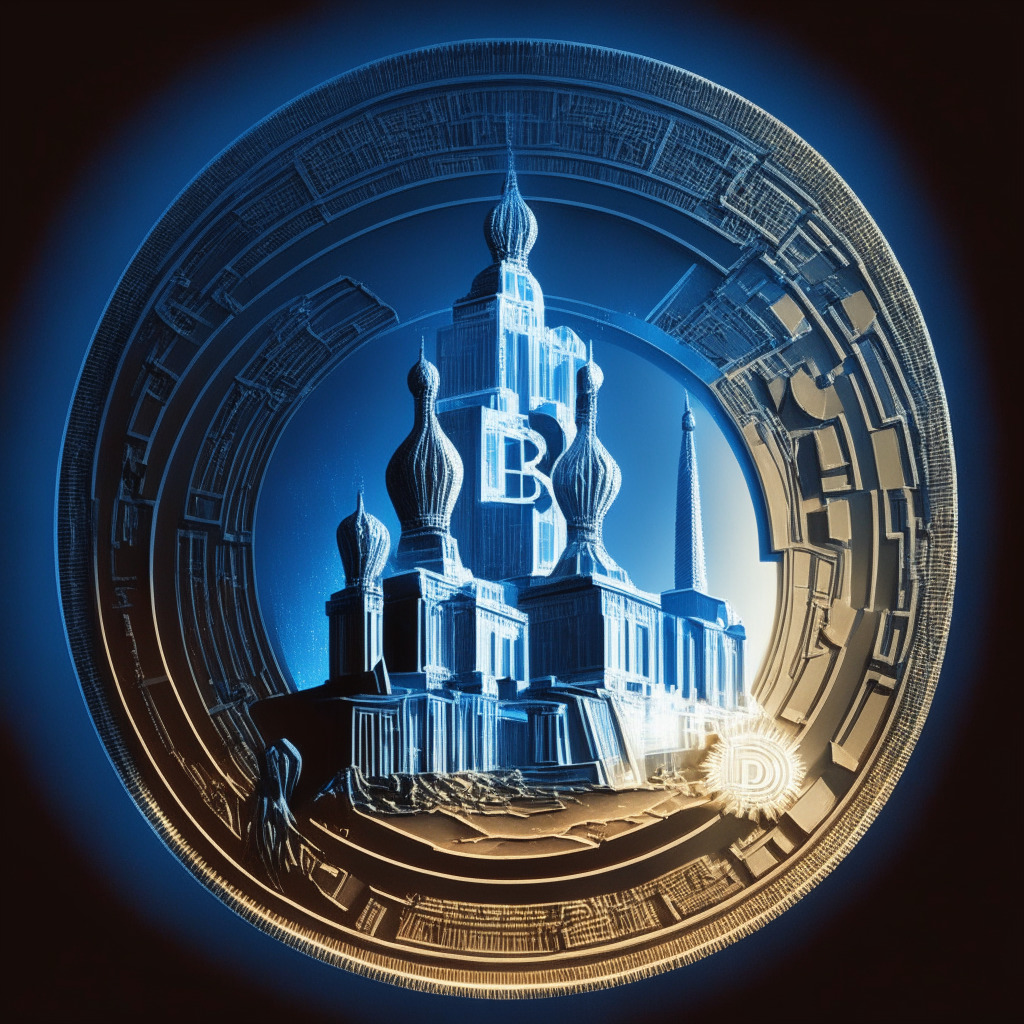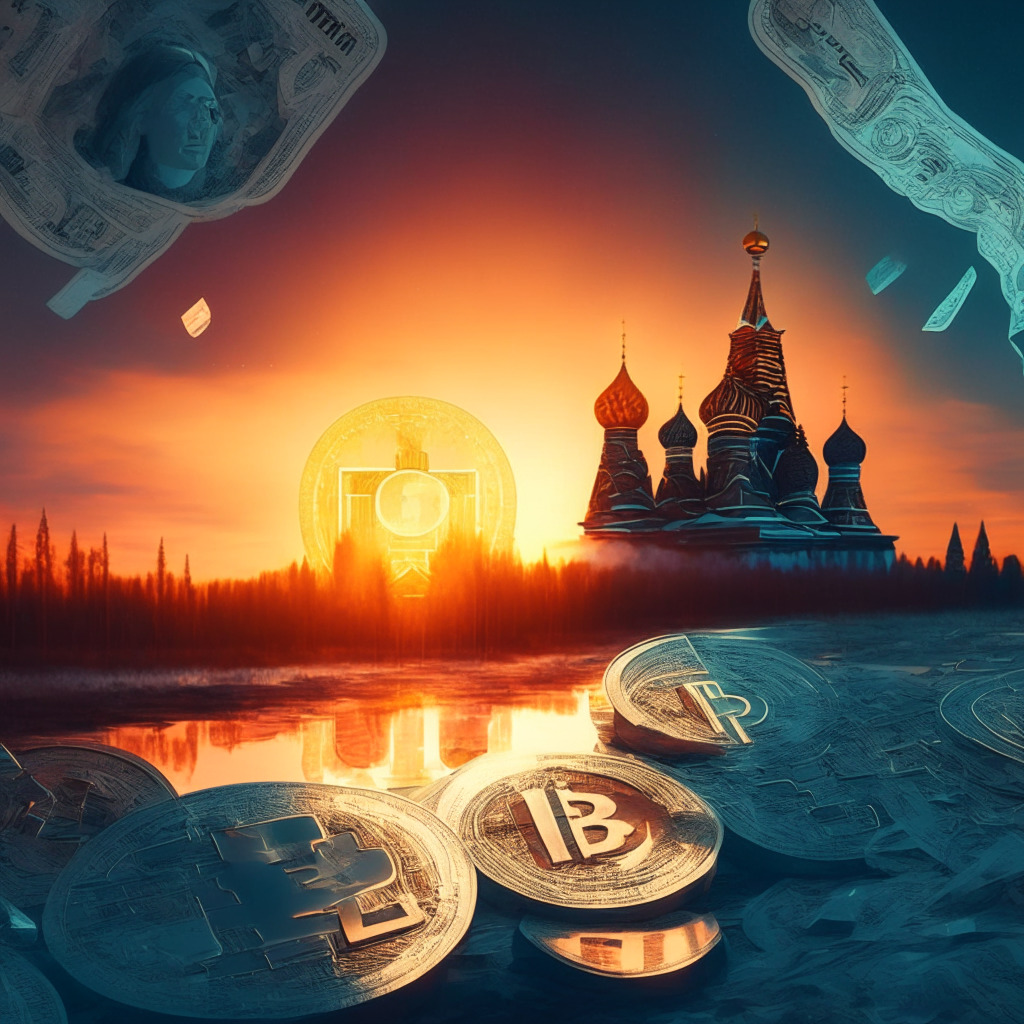Anatoly Aksakov, head of Russia’s State Duma financial committee, predicts a reduced role for traditional banks as the Central Bank Digital Currency (CBDC), the digital ruble, gains adoption. Aksakov urges banks to align their infrastructure with blockchain technology to leverage CBDC’s financial capabilities.
Search Results for: State Duma
Russian Legislator Predicts Global Foray of Digital Ruble by 2025, Possible Shift in International Trade
A high-ranking Russian legislitor, Anatoly Aksakov, predicts that domestic corporations will utilize the nation’s digital ruble, a Central Bank Digital Currency (CBDC), by 2025, especially in Latin American nations. He also suggested potential usage could transform “mutual settlements” among these nations.
Navigating Digital Ruble Tokens: Russia’s Potential Game-Changer with Associated Risks
The Central Bank of Russia has limited digital ruble wallets to a maximum of 300,000 rubles per month to maintain market stability. However, suggestions have been made to remove this cap for non-Russian investors to facilitate foreign investment in Russia and simplify the purchase of Russian digital financial assets. This decision reflects the growing adoption of digital currencies globally.
Russo-Chinese Digital Currency Alliance: Pros, Cons, and The Inherent Power Tussle
Anatoly Aksakov, a Russian political figure, suggested potential compatibility between Russia and China’s Central Bank Digital Currencies (CBDCs) for international payments. With aims to use the digital ruble for global economic activities, this proposal hints at the possibility of digital currencies taking the centre stage in world trade.
Understanding the Arrival of Russia’s Digital Ruble: Hopes, Fears, and Future Possibilities
“The new law signed by President Putin introduces a digital ruble, operated by the Russian Central Bank, for money transfer and payment. This opens new possibilities and concerns alike, as the centralization draws apprehension from crypto enthusiasts who favor decentralization. Initial public response may be lukewarm, with mass adoption not anticipated before 2025 or 2027.”
Cross-Border Potency of Digital Rubles and Yuan: Boon or Bane for International Trade?
The dialogue between Russia and China’s central banks is accelerating speculation around Central Bank Digital Currencies (CBDCs). While Russia aims for early initiation with domestic commercial banks, China is progressing with offline and CBDC wallet tests. Meanwhile, Russia’s new legislation permits “non-residents” to own digital ruble wallets, establishing the digital ruble as an international trading tool. These developments challenge traditional banking norms and raise questions concerning international trade norms, regulations, and digital security.
Legal Complexities and Regulatory Scopes in the Evolving Cryptoasset Space: The StakeHound Example
The blockchain and cryptoasset sector, marked by advancements, legal issues, and regulatory responses, involves complexities like the recent lawsuit between StakeHound and Celsius. Global legislators are working to ensure safe and transparent crypto markets, while controversies rise with the introduction of Central Bank Digital Currencies (CBDCs).
Russia’s Digital Ruble: A Revolution in Finance or A Step Towards Financial Monopoly?
“Russia’s parliament is moving towards legislation for the ‘digital ruble’, their prospective Central Bank Digital Currency (CBDC). The proposed law hands power to the Bank of Russia to manage the CBDC infrastructure, issue currency, and guarantee safety. This move opens opportunities for new payment avenues and cross-border solutions, despite an initial skepticism and ban on digital assets.”
Russia’s Crypto Conundrum: Navigating Between Bans, Regulations, and a Lucrative Mining Industry
The Russian finance ministry proposes a ban on cryptocurrency circulation, exempting only stablecoin issuers and crypto miners. This comes alongside efforts to legitimise the advanced, yet untaxed and unrecognised, crypto mining sector. The move faces resistance, due to potential confusion caused by unclear definitions and concerns about enforcement among crypto owners.
Russia’s Shift Towards Private Crypto Exchanges: Examining Implications, Benefits, and Drawbacks
Russia abandons plans for a government-operated cryptocurrency exchange, opting instead to create regulations allowing the private sector to manage exchanges. This reflects the contradictory relationship autocratic governments have with decentralized digital assets while highlighting the inevitability of cryptocurrency adoption and the need for effective regulations.
Russia’s Shift to Regulating Multiple Crypto Exchanges: Impact on Cross-Border Settlements and Stability
The Russian government plans to establish regulations for multiple cryptocurrency exchanges, focusing on cross-border settlements and bypassing sanctions restrictions. While Russia’s central bank is expected to regulate these exchanges, new limitations and compliance rules may be introduced. This multi-exchange approach balances the potential benefits of cryptocurrencies and mitigates risks to the country’s financial stability.
Russia Abandons National Crypto Exchange Plans, Focuses on Regulating Multiple Platforms
Russia has abandoned plans for a national cryptocurrency exchange and is now focusing on establishing rules and regulations for multiple crypto trading platforms, prioritizing regulation. This shift aims to create a robust and secure ecosystem for digital assets while addressing challenges like security and investor protection.
Russia Forgoes National Crypto Exchange for Regulated Operations: Pros, Cons, and Market Impact
Russian authorities abandon plans for a national cryptocurrency exchange, focusing instead on establishing regulations for platform development and operations. This move, supported by the Ministry of Finance and Central Bank, aims to reduce risks and encourage crypto adoption in the country, while addressing market dominance and security concerns.
Russian Firms Turn to Crypto for Overseas Trade: Legal Repercussions and Future Regulations
Russian firms are using cryptocurrency for overseas transactions to circumvent US and EU sanctions, while operating within the existing legal framework. However, the Russian Central Bank expresses openness to digital currency-based trade, prioritizing the launch of a digital ruble and developing cryptocurrency regulations. The government’s balancing act between digital currencies and their digital ruble initiative remains to be seen.
Crypto Blessing or Curse? Russia’s Cross-Border Experiment Amid Sanctions
Cryptocurrency may be bad for investors but it can be useful in international settlements, according […]
Bye Bye Dollar? BRICS Nations Aim to Secure Currency Deal by 2023 amid De-dollarization Efforts
The chairman of the State Duma Committee on the Financial Market, Anatoly Aksakov, has announced […]















